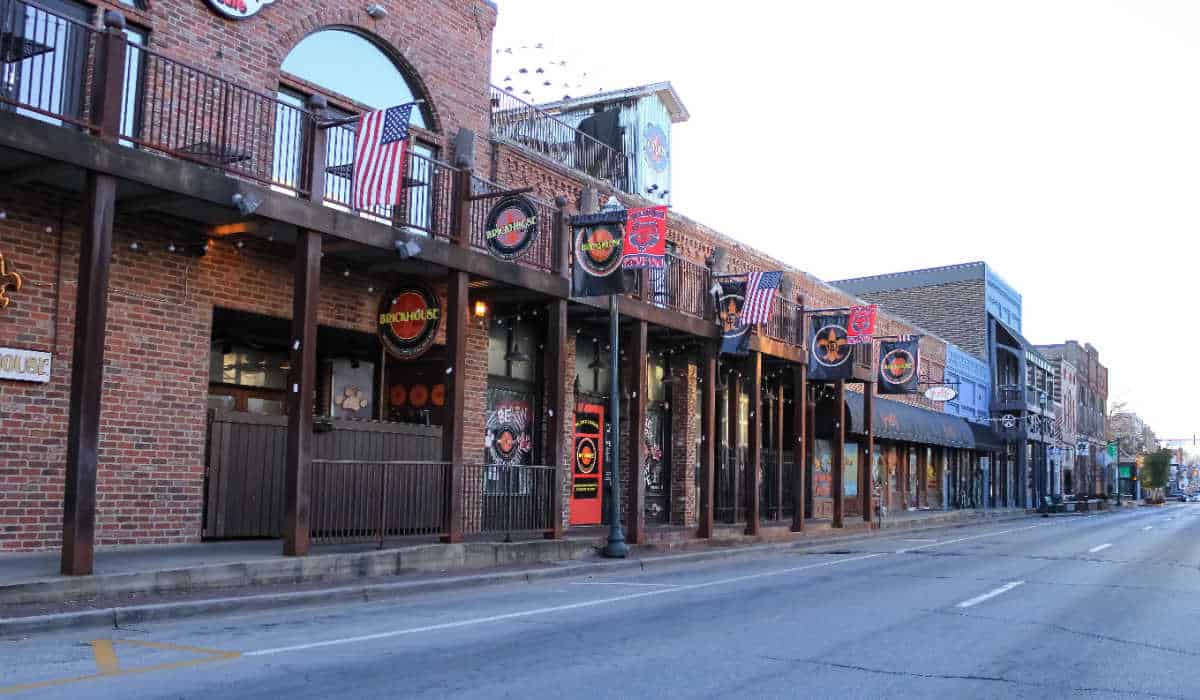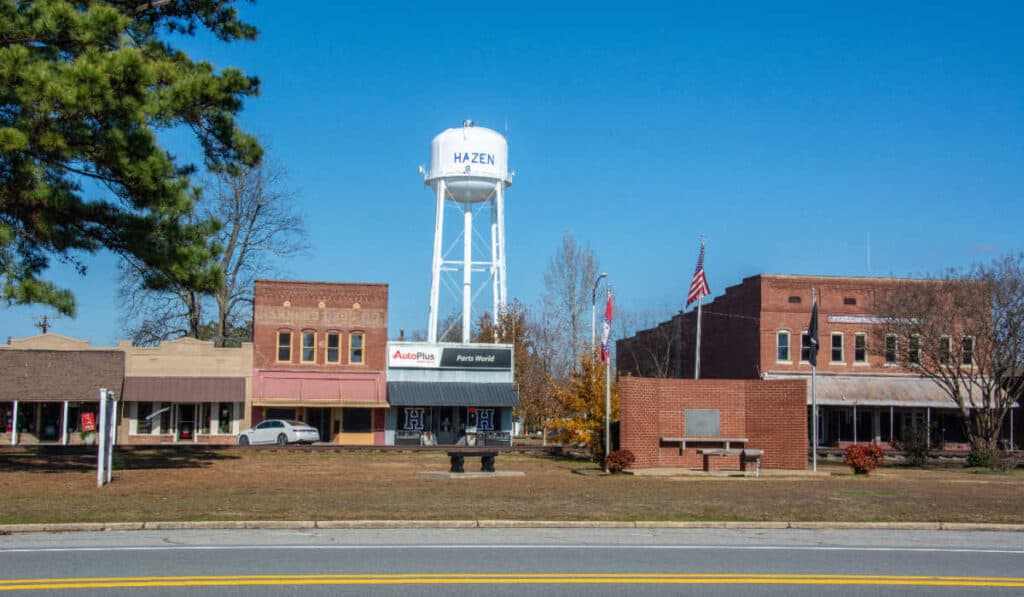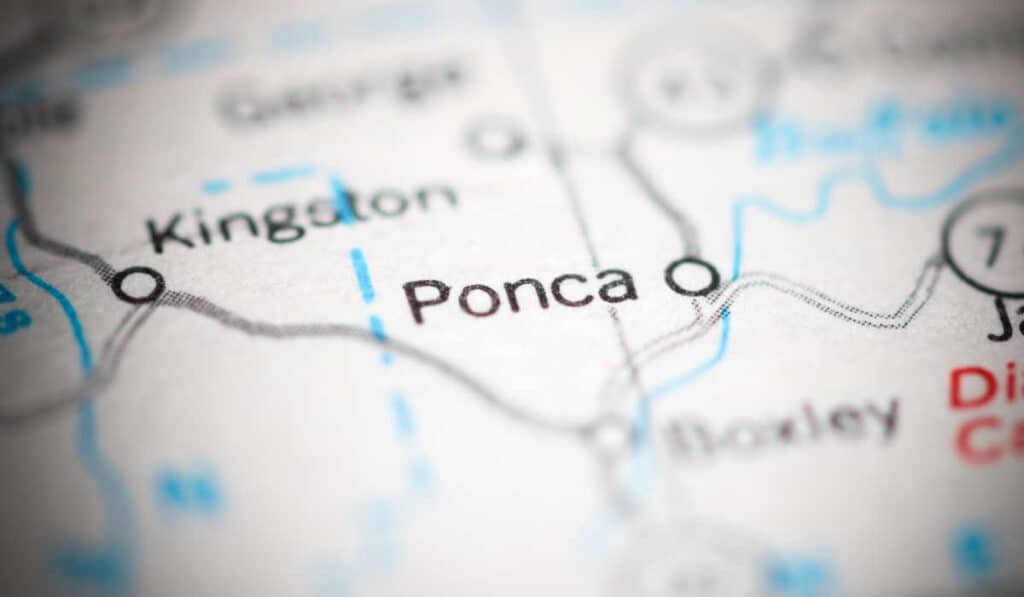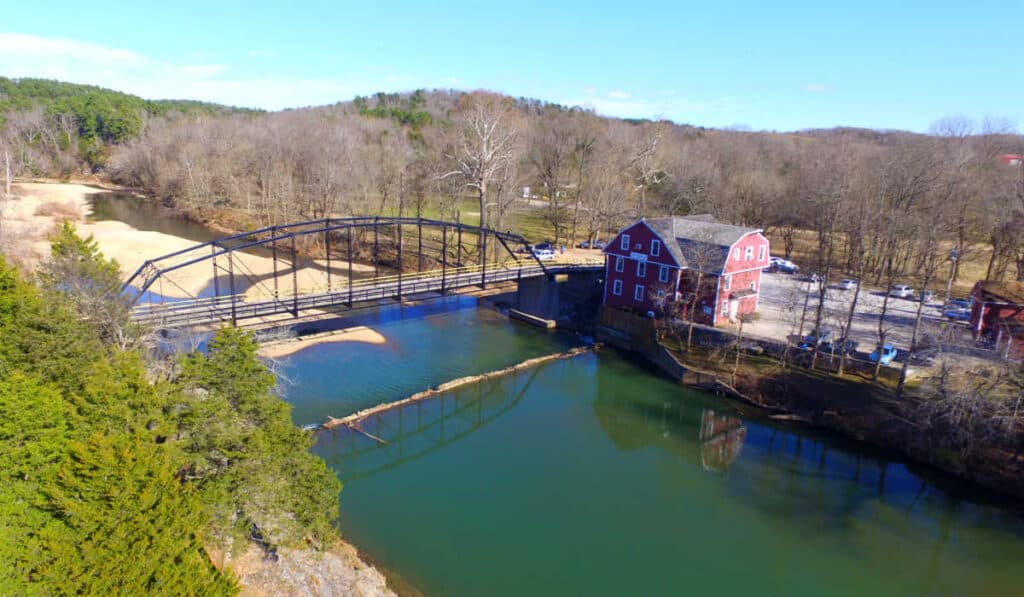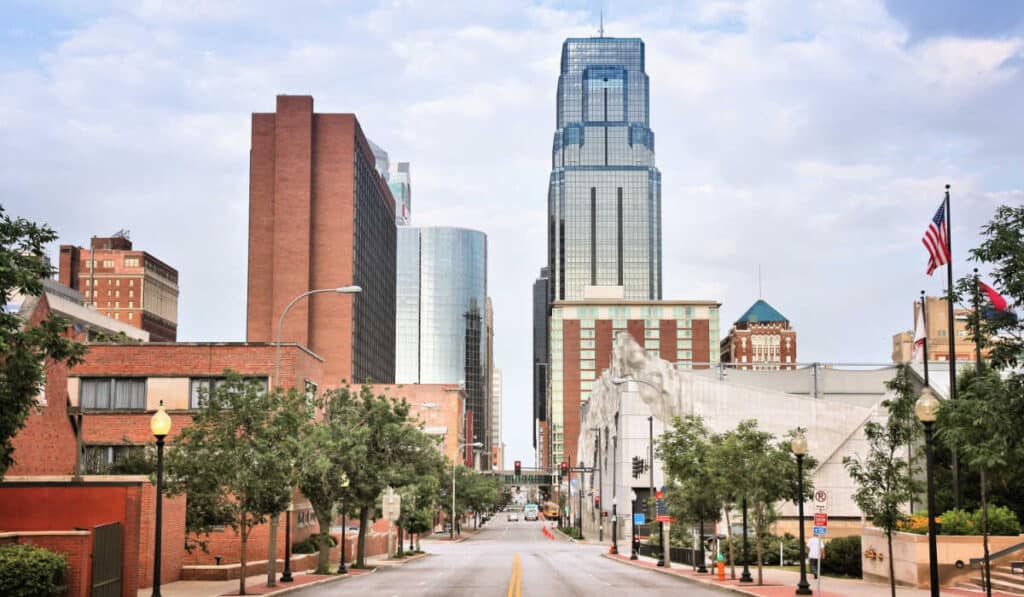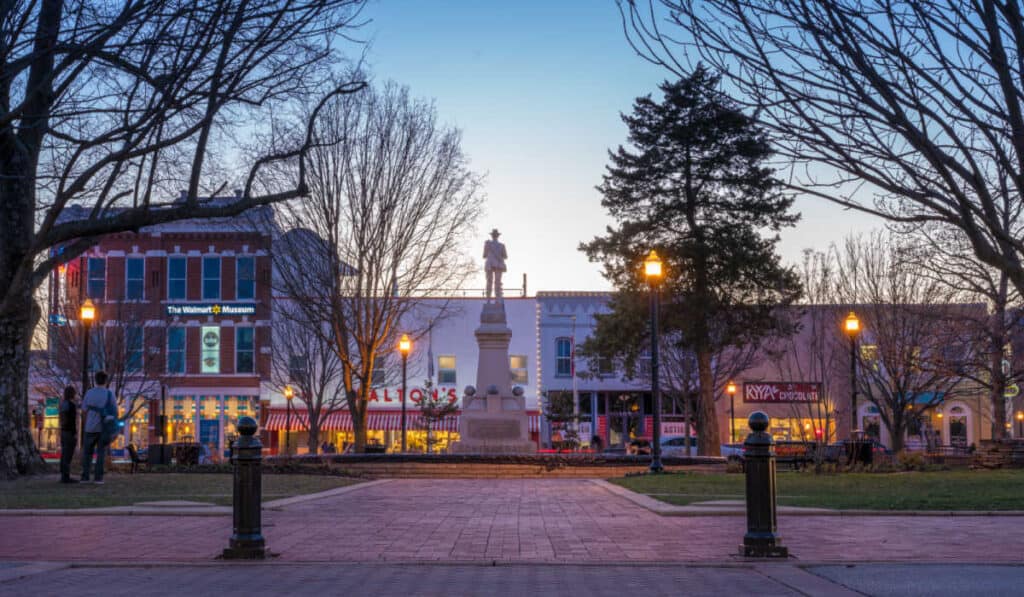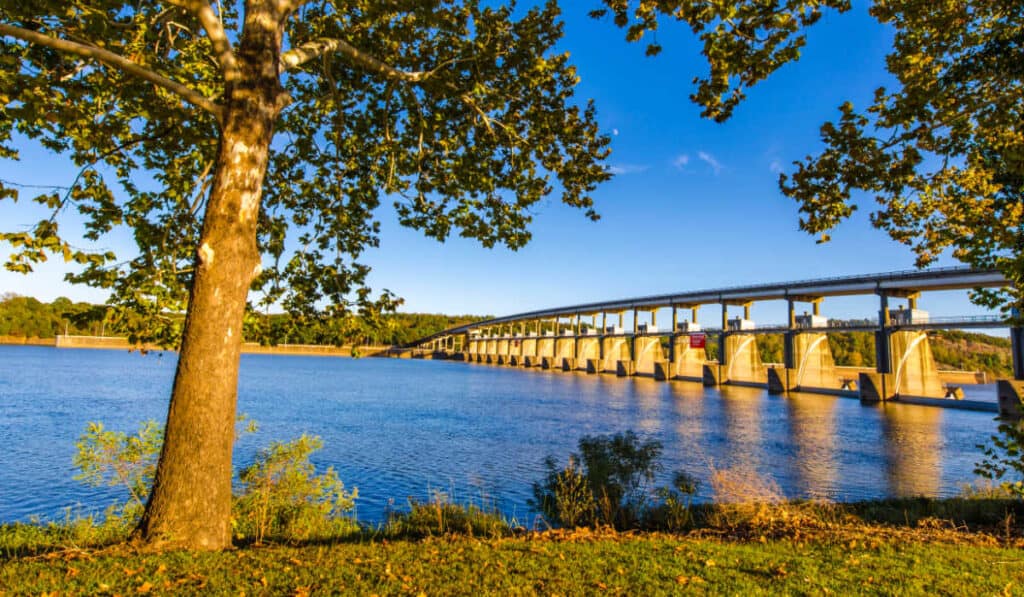Nestled in the northeastern corner of Arkansas, Jonesboro is a thriving city that boasts a unique blend of small-town atmosphere and cultural attractions. As the fifth-largest city in the state, Jonesboro serves as one of the two county seats of Craighead County and has a population of approximately 81,969 residents. The city occupies a strategic location on Crowley’s Ridge, a geological formation that adds visual allure to the region.
Jonesboro is known for its expansive natural landscape, encompassing pristine forests, meandering rivers, and picturesque mountain scenes. These surroundings create ample opportunities for outdoor enthusiasts, from birdwatching and hunting to fishing and hiking. The city’s southern hospitality shines through in its friendly citizenry and supportive community, with locals taking immense pride in their institutions and cultural landmarks.
In addition to its natural beauty and warm atmosphere, Jonesboro is home to numerous attractions that cater to diverse interests. From well-regarded museums and educational institutions, like the Arkansas State University, to bustling areas filled with entertainment options, there’s no shortage of activities for both visitors and residents to enjoy. As you explore all that Jonesboro has to offer, it’s easy to see why this charming city has garnered attention and admiration from all corners of Arkansas and beyond.
Geographical Overview
Jonesboro is a city located in the northeastern corner of the U.S. state of Arkansas, serving as one of two county seats for Craighead County. It is the largest community in the northeast Arkansas region and holds a significant position within the state.
The city’s origins can be traced back to the Louisiana Purchase, a land deal that occurred in 1803 between the United States and France. This historical event played a crucial role in the development of Jonesboro, which was eventually incorporated in 1859.
Jonesboro is situated on Crowley’s Ridge, a unique geological formation that spans across several states. This elevated landform sets it apart from the surrounding Mississippi River Delta lowlands. Crowley’s Ridge also has a scenic parkway that runs through it, known as the Crowley’s Ridge Parkway, offering beautiful views and recreational opportunities for residents and visitors alike.
In terms of location, Jonesboro is approximately 60 miles northwest of Memphis, Tennessee, which provides a connection to a major urban metropolitan area. Being in close proximity to the Mississippi River Delta also affords Jonesboro the benefits of the rich agricultural lands and water resources that the region holds.
In summary, Jonesboro, Arkansas stands out for its historical roots, unique geographical placement on Crowley’s Ridge, and its position within the wider framework of northeastern Arkansas and the Mississippi River Delta.
History
Jonesboro, Arkansas, was first inhabited for thousands of years by indigenous peoples, including the Osage, Caddo, and Quapaw tribes. American settlers arrived in the area in the early 19th century, and the city was officially established in 1859. It was named after William A. Jones, a state senator who supported the formation of Craighead County, which was created from parts of Mississippi, Greene, and Poinsett counties.
During the Civil War, the Skirmish at Jonesboro took place in September 1863. Confederate and Union forces clashed in the town, but there were no significant changes in territorial control as a result of the battle. In the following years, the city began to grow, with institutions like Woodland College, founded in 1880, and the St. Bernard’s hospital, established in 1900 by the Olivetan Benedictine order.
The early 20th century also saw incidents like the Jonesboro lynching of 1881 and the election of Mayor Wade Thomas, who strove to modernize the city. Jonesboro continued to develop and expand, with multiple buildings being listed on the National Register of Historic Places, reflecting the town’s rich history.
Agriculture played a significant role in Jonesboro’s development, as local farmers began to successfully grow rice in 1910. This led to the creation of Riceland Foods Inc., which at the time operated the largest rice mill in the world. Along with rice, the cotton and soybean industries contributed to Jonesboro’s economic foundation.
In 1973, Jonesboro was hit by a deadly tornado that caused extensive damage and numerous casualties. The city has since rebuilt and recovered. The nearby town of Lake City serves as the second county seat of Craighead County, further strengthening the region’s administrative importance.
Today, Jonesboro stands as a cultural and economic center of Northeast Arkansas, with Arkansas State University contributing to the city’s educational and cultural offerings.
Economy
Jonesboro, Arkansas is located in the northeastern corner of the state and is one of the county seats of Craighead County. With a population of 81,969 in 2023, Jonesboro has a diverse economy that is ever-changing and continues to evolve. The major industries in the city include health care, education, and manufacturing. As the economy grows, these sectors are anticipating a more skilled workforce to help drive their success.
The agriculture industry has played a significant role in Jonesboro’s economy. The city is known for being a center for cotton and rice production. These agricultural products remain a staple of the region’s economy and contribute to the employment and income of the city’s residents.
The presence of several railway systems has been instrumental in connecting Jonesboro to different parts of the country. The Cotton Belt Railroad, St. Louis Southwestern Railway, and St. Louis–San Francisco Railway have all provided crucial transportation infrastructure for the movement of goods and people, facilitating commerce and economic growth in the area.
In addition to agriculture and transportation, Jonesboro also boasts a strong retail sector. The city’s sales tax rate is 8.5%, while the US average is 7.3%. The slightly higher tax rate contributes to the overall revenue of Jonesboro, which can be used to improve infrastructure and fund public services.
On the income front, Jonesboro residents have an average yearly income of $23,840. Although this figure is lower than the US average, the city’s median household income has shown a steady growth, reaching $47,062 in 2020.
In summary, Jonesboro’s economy is marked by the contributions from key sectors such as agriculture, transportation, retail, and a growing number of skilled workers in the health care, education, and manufacturing industries. These factors work together to create a vibrant, thriving economic landscape for the city’s residents.
Education
Jonesboro, Arkansas is known for its strong education system, with Arkansas State University (ASU) being the cornerstone of higher education in the region. ASU is the cultural and economic center of Northeast Arkansas, fostering a sense of community and supporting local initiatives.
The city is also home to a well-regarded Jonesboro School District, which comprises a variety of public schools committed to providing quality education to its students. The district offers diverse educational opportunities, ensuring that students of all backgrounds get access to the resources they need to succeed.
Public schools in Jonesboro cater to various academic needs, and numerous institutions have gained recognition for their commitment to excellence. For instance, The Academies At Jonesboro High School is recognized for a high diversity score, which is higher than the state average. The school ranks within the bottom 50% of all 993 schools in Arkansas, based on combined math and reading proficiency testing data for the 2020-21 academic year.
In addition to public schools, Jonesboro offers educational options for younger students through Westside Middle School. As part of the larger Westside Consolidated School District, this institution serves families and students from the surrounding areas, furthering the sense of community throughout the region.
Jonesboro’s educational offerings extend beyond traditional institutions, with several colleges and community programs providing specialized training and resources for continuing education. The city’s focus on comprehensive education reflects its dedication to nurturing a knowledgeable and skilled population that contributes to the growth and success of the region.
Arts and Culture
Jonesboro, Arkansas, is a vibrant city with a thriving arts and cultural scene. The city is home to a variety of museums and galleries that showcase local and regional talent, as well as contemporary art from across the nation.
One prominent institution in Jonesboro is the Bradbury Art Museum, located in the heart of the town’s downtown area. This museum features contemporary art exhibitions, showcasing the works of both emerging and established artists. The exhibitions change regularly, ensuring that there’s always something new and exciting to see.
The ASU Museum, housed on the campus of Arkansas State University, focuses on preserving and sharing the rich history of the region. With exhibits that span from prehistoric times to the present day, visitors can learn about the native tribes of the area, the emergence of European settlers, and the development of the city of Jonesboro.
For those interested in live performances, the Fowler Center is the city’s premier venue for concerts and other events. This modern facility hosts a wide variety of performances, ranging from classical music to dance and theater productions. The Fowler Center serves as a cornerstone of the city’s performing arts scene and is a must-visit for anyone exploring the cultural offerings of Jonesboro.
In addition to these key establishments, the downtown area of Jonesboro offers a rich mix of galleries, public art installations, and street art, further highlighting the city’s commitment to supporting its creative community.
In summary, Jonesboro, Arkansas, has a rich and diverse arts and culture scene, offering a wide range of experiences for locals and visitors alike. From contemporary art at the Bradbury Art Museum to the fascinating history at the ASU Museum, and the lively performances at the Fowler Center, there are numerous ways to immerse oneself in the artistic heritage of this charming city.
Recreation
Jonesboro, Arkansas, situated in the northeastern corner of the state, is known for its picturesque landscapes, brimming with mountains, rivers, and pristine forests. The city offers a variety of outdoor activities for nature enthusiasts, making it a popular recreational destination for locals and tourists alike.
One of the city’s most significant recreational attractions is Craighead Forest Park, which boasts an expansive area for various outdoor activities such as hiking, biking, and fishing. Visitors to the park can explore numerous trails that allow them to enjoy the natural beauty of Jonesboro. Additionally, the park provides fishing opportunities, inviting anglers to try their luck in catching fish at the park’s lake.
Another popular destination is Lake Frierson State Park, located just a short drive from Jonesboro. This tranquil park offers a relaxing environment for fishing, picnicking, and observing native wildlife. The park is also home to several hiking trails suitable for all skill levels, allowing guests to experience the area’s lush greenery and scenic vistas firsthand.
Apart from parks, the Crowley’s Ridge Nature Center is a must-visit destination for those interested in learning more about the region’s unique geological formation and its diverse flora and fauna. The center features indoor and outdoor exhibits, walking trails, and various educational programs, ensuring a fulfilling experience for visitors of all ages.
Furthermore, the City of Jonesboro Parks & Recreation Department manages 25 parks and 900 acres of green spaces, providing ample opportunities for sports, recreation programs, and physical activities for children and adults. The department also focuses on fostering community relationships through various events and gatherings.
In summary, Jonesboro, Arkansas is well-known for its abundant outdoor recreational opportunities, including parks, hiking trails, fishing spots, and nature centers. Visitors to the area are sure to find plenty of activities to suit their interests, making Jonesboro a sought-after destination for outdoor enthusiasts.
Attractions
Jonesboro is a charming city in Arkansas known for its diverse attractions and rich cultural heritage. With a steadily growing population, the city offers a blend of natural beauty, history, and modern amenities, making it an interesting destination for visitors.
Downtown Jonesboro boasts a variety of local shops, art galleries, and restaurants, giving visitors and residents alike a taste of the city’s culinary scene and creative atmosphere. The downtown district is ideal for a leisurely stroll, allowing you to immerse yourself in the city’s character and charm.
The city’s cultural heritage can be explored through several key attractions. One notable site is the Arkansas State University Museum, which showcases the history of the area and offers informative exhibits. The Crowley’s Ridge Nature Center tells the story of the unique ridge traversing the Arkansas segment of the Mississippi Delta, further enriching your understanding of the region.
Outdoor enthusiasts will appreciate Craighead Forest Park, a large urban park featuring a tranquil lake, fishing opportunities, hiking trails, disc golf, sports courts, and a children’s playground. The park is a perfect place to enjoy the beauty of nature and engage in various recreational activities.
Throughout Jonesboro, you’ll find an array of restaurants catering to different tastes, providing a delightful gastronomic experience. From fine dining establishments to cozy cafes, there is something for everyone, allowing you to savor local and international cuisine.
In conclusion, Jonesboro, Arkansas has a wealth of attractions that cater to all interests and preferences, making it a destination worth exploring.
Parks and Natural Features
Jonesboro, Arkansas is surrounded by a vast and beautiful natural landscape, including forests, mountains, and rivers. This makes the city an ideal destination for outdoor enthusiasts, bird watchers, hunters, and fishermen. The region is home to several parks which showcase its picturesque lakes and forests full of local wildlife.
One of the notable parks in Jonesboro is Lake Frierson State Park. Located on the shores of the 335-acre Lake Frierson, this park provides ample opportunities for recreational activities. Fishing enthusiasts will find a variety of fish species, including bass, bream, catfish, and crappie. The park also features picnic sites, a pavilion, a playground, hiking trails, a launch ramp, and a fishing pier for visitors’ enjoyment.
In addition to state parks, Jonesboro has plenty of local parks that offer a range of outdoor activities and facilities. Many parks are equipped with picnic sites, pavilions, playgrounds, and open spaces for visitors to enjoy a day in nature. These venues are perfect for family outings, leisurely walks, or engaging in sports and exercise.
In summary, Jonesboro’s numerous parks and natural features provide a diverse selection of recreational opportunities for residents and visitors alike. From fishing in pristine lakes to hiking through lush forests, the region boasts a wealth of outdoor experiences that cater to a variety of interests and preferences.
Local Amenities
Jonesboro, Arkansas boasts a variety of local amenities suitable for residents and visitors alike. The city offers numerous recreational opportunities for families, including parks, playgrounds, and golf courses.
One of the noteworthy attractions in Jonesboro is Craighead Forest Park, which features a paved hiking and biking trail, exercise stations, and playgrounds for children. The park is an excellent choice for families looking to spend quality time outdoors.
For nature enthusiasts, Crowley’s Ridge Nature Center offers indoor and outdoor exhibits, films, and trails that tell the story of the unique ridge that traverses the Arkansas segment of the Mississippi Delta. This educational center is perfect for all ages to explore and learn about the local ecosystem.
Golfers can enjoy their favorite sport at various golf courses in and around Jonesboro. Some of the popular options include the Sage Meadows Golf Course and Jonesboro Country Club. These courses cater to players of different skill levels and often offer competitive membership rates for locals.
As of the 2020 Census, Jonesboro had a population of over 78,000 people. The city has experienced rapid growth in recent years, making it the fifth-largest city in Arkansas. This growth comes with an increased demand for housing and rental accommodations. Renters can find a range of apartments and single-family homes to suit their needs and budgets.
In summary, Jonesboro, Arkansas is known for its ample local amenities, making it a highly livable community. The city offers a variety of recreational opportunities, from playgrounds to golf courses, suitable for families and residents with various interests. Moreover, the city’s growth in recent years provides ample housing options for both renters and homeowners alike.
Transportation
Jonesboro, Arkansas, offers various transportation options for its residents and visitors. One of the key features of the city’s transportation system is Jonesboro Economical Transit System (JETS). JETS is the public transportation system that serves the largest city in northeastern Arkansas. It has three scheduled bus routes, providing an efficient way to navigate the city. Paratransit service is also available for individuals who cannot utilize the regular fixed-route bus services.
In addition to the public transit system, Jonesboro is served by the Jonesboro Municipal Airport. While it is primarily a general aviation airport, it does provide essential air access to the city and the surrounding region. The airport is conveniently located, making it an important hub for both business and leisure travelers.
Moreover, the city’s location on the intersection of the east-west U.S. highways 63 and 18 boosts its connectivity to the broader northeastern Arkansas region. These major highways contribute significantly to the accessibility and growth of Jonesboro, attracting businesses and fostering economic development.
To summarize, residents and visitors in Jonesboro, Arkansas, have access to various transportation options, including buses, paratransit services, and an airport. With efficient public transportation and well-connected roads, Jonesboro ensures a smooth and convenient commuting experience in the city and its surrounding regions.
Healthcare
Jonesboro, Arkansas serves as the hub of healthcare for people in Northeast Arkansas and Southeast Missouri. The city’s healthcare facilities offer state-of-the-art technology with professional care accentuated by quality and compassion.
St. Bernards Medical Center is a notable healthcare institution in Jonesboro. It is a general medical and surgical facility that is rated high performing in three adult procedures and conditions. This medical center exemplifies the quality healthcare that residents and visitors can expect in the region.
Another healthcare facility in Jonesboro is the Arkansas Continued Care Hospital. This specialized hospital caters to patients who require a higher level of care, such as those transitioning from acute care settings. Located in the former NEA Baptist Memorial Hospital along Stadium Drive, the Arkansas Continued Care Hospital has private rooms for each patient, providing them with a comfortable and personalized environment.
As the home of Arkansas State University and the cultural and economic center of Northeast Arkansas, Jonesboro fosters growth and innovation in its healthcare sector. Residents and visitors have the assurance of quality healthcare services within reach, contributing to the city’s status as a regional leader in medical care.
Notable Residents
Jonesboro, Arkansas has been home to several prominent individuals, making important contributions to various fields.
John W. Snyder was a notable resident of Jonesboro. He served as the Secretary of the Treasury during President Harry S. Truman’s administration. Born in Jonesboro in 1895, Snyder played a crucial role in shaping the economic policies of the United States during his term as Treasury Secretary from 1946 to 1953. His tenure is marked by the implementation of the post-World War II economic policy, and he is remembered as a close friend and advisor of President Truman.
In the world of sports, Jonesboro has produced notable athletes, such as Alan Belcher, a retired mixed martial artist who competed in the Ultimate Fighting Championship (UFC). Another local athlete, Wes Bentley, made a name for himself as a professional football player.
Apart from these figures, the city’s political landscape also features prominent personalities. Francis Cherry, the 35th Governor of Arkansas (1953-1955), resided in Jonesboro and conducted gubernatorial business from his home in the city. His term included efforts to improve education and promote civil rights in the state.
The city is also home to influential educators and academics. Arkansas State University is located in Jonesboro, attracting talented individuals who have contributed significantly to the local community. This includes faculty, staff, and students who have made an impact not only on the city but also in their respective fields.
In summary, Jonesboro, Arkansas, is known for being home to various notable residents, including politicians, athletes, and academics, who have made significant contributions to the local community and the nation as a whole.
Safety and Crime
Jonesboro, Arkansas, experiences a significant level of criminal activity, which is a critical concern for both residents and visitors. Notably, a crime occurs every 2 hours and 12 minutes on average in the city. This puts Jonesboro among the most dangerous metro areas in the United States.
When it comes to violent crime, Jonesboro has a violent crime index of 6 (where 100 is the safest). The chances of becoming a victim of a violent crime are 1 in 133 in Jonesboro, compared to the Arkansas state average of 1 in 141. The city experiences an elevated rate of 7.51 violent crimes per 1,000 residents, surpassing the national median of 4.
Property crime is another vital concern, with Jonesboro scoring 59.4 on a scale of 1 (low) to 100 (high) and a staggering rate of homes being 300% more likely to be robbed without a home security system. This calls for increased awareness and proactive action among community members to reduce the risks associated with property crime.
However, law enforcement in Jonesboro has a solid track record of visibility and response. Out of 44 responses collected, 52% indicated that the police are highly visible and responsive, while 30% mentioned that the police are visible but tend to respond slowly when needed.
To mitigate the risks associated with crime and enhance safety in Jonesboro, it is essential for residents and visitors alike to familiarize themselves with the safest areas, employ home security systems, and cooperate with law enforcement in maintaining a secure environment.
Media and Communications
Jonesboro, Arkansas, located in the northeastern corner of the state and one of the county seats of Craighead County, has a population of 81,969 as of 2023. With its growing population, the city has a budding media and communications industry catering to the diverse needs of its residents.
In the city, there are various media and communication companies that offer a range of services, from traditional media outlets to digital marketing and advertising firms. For example, Jonesboro Communications, Inc. is one such company based in Jonesboro, providing communication services to local businesses. Employment opportunities in the media and communication field are available, with full-time, temporary, and part-time jobs offered by companies in the city.
The local media landscape includes print, radio, and television. The Jonesboro Sun is the primary daily newspaper, providing residents with the latest news, sports, and community events. Radio listeners have a selection of stations catering to different tastes, spanning news, talk, sports, and music formats. Television-wise, Jonesboro is served by several local and regional channels, offering news, entertainment, and educational programming for viewers in the area.
While traditional media outlets continue to thrive, the media landscape in Jonesboro is evolving to incorporate the rapid growth of digital platforms and social media. Many local businesses are tapping into the power of digital advertising, using platforms such as Google Ads and Facebook advertising to reach their target demographics. Advertising agencies in the region help businesses establish a solid online presence, enhancing their visibility and reach in the increasingly competitive market.
In terms of education, the University of Arkansas offers a Communication & Media Studies Bachelor’s Program. In the 2020-2021 academic year, 252 students graduated with a bachelor’s degree in communications. As the city of Jonesboro continues to grow, the demand for skilled professionals in the media and communication sector will only increase, creating a multitude of opportunities in an already thriving industry.

